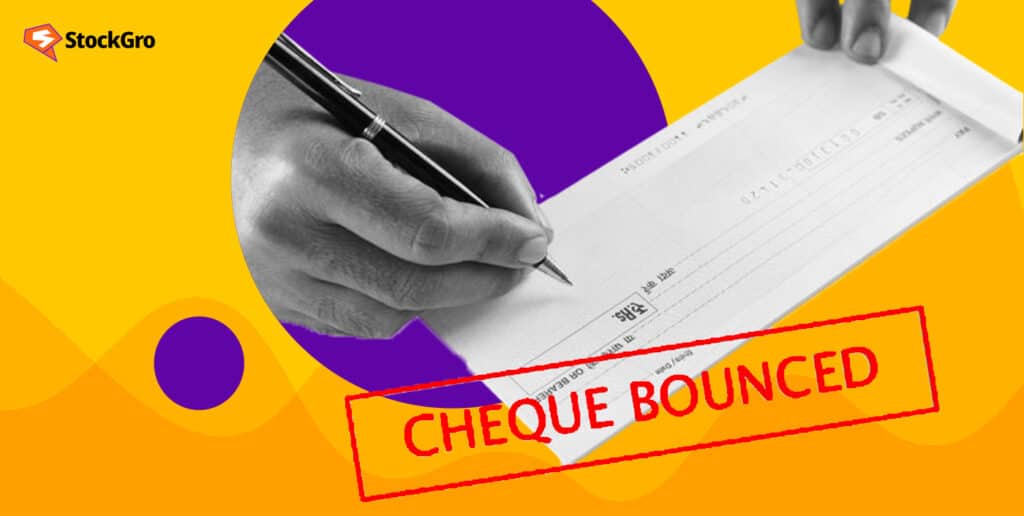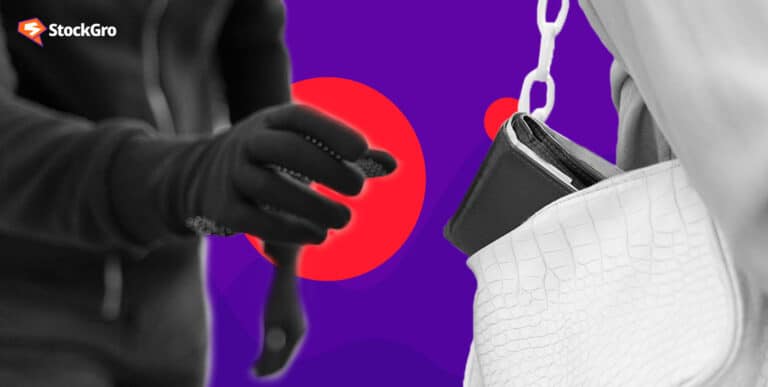
Bounced cheques create cash flow issues and legal hassles for companies. What do you do when cheques don’t get encashed by the bank due to insufficient funds or technical flaws?
This article offers a complete understanding of the most common query: “What if a cheque bounces?”
Today we will discuss the details of the procedures regarding bounced cheques, including the reasons for cheque non-payment, penalties involved, the complaint filing process, and more.
Let’s begin!
What is a bounced cheque?
A cheque is a formal written agreement between the party issuing the money and the party receiving it. The ideal scenario would be for the payer’s bank to transfer the funds to the payee’s account.
However, there are instances when the bank of the payment or the payee declines to keep this assurance. This ‘decline’ might have several reasons. This kind of cheque is known as a “bounced cheque” and happens when it is not cashed.
Also read: Unlocking prosperity: The transformative power of financial literacy
Possible reasons for a cheque bounce
Bounced cheques may happen for many different causes. Typically, this occurs because when the cheque was presented for payment, the payer did not have enough money in their savings account.
A “bounce due to insufficient funds” is the technical term for this kind of situation. Some more reasons why a cheque can bounce are:
- Mismatched signatures: A bounced cheque often happens when the bank’s record of the payer’s signature is inconsistent with the one on the document.
- Different account numbers: The cheque will return as bounced if the account number shown on it fails to match the payer’s account number.
- Damaged or expired cheques: The bank can dishonour the cheque if it has been damaged or altered. Cheques that have expired will bounce if they are submitted for payment beyond the specified date.
- Stop payment: Bounced cheques occur when the payer instructs the bank to discontinue payment.
Also read: Tax-efficient withdrawal strategies for retirement in India
What happens when a cheque bounces?
One of the first things you should do is contact the issuer to ensure the account has sufficient funds before you deposit the cheque. Despite these cautions, there are instances where cheques bounce. How should you proceed?
Declined cheque for technical grounds:
There are a lot of technical reasons why a cheque could be rejected. An example would be the difference between the master signature and the one on the cheque. There are situations when current account cheques are denied due to missing stamps.
Common problems include word-and-number mismatches, incorrect dates, overwriting cheques, and using non-CTS (Cheque Truncation System) cheques, among others.
In such a situation, your first move should be to notify the cheque’s issuer and ask for an urgent RTGS (Real Time Gross Settlement) transfer of the funds. If you want to play it safe and prevent any hassle, you should also let the supplier know that you have sent the cheque and wait to deposit it until you give them the green light.
Be careful to include the reasons for the rejection in a fax or email when you notify the issuer of the rejected cheque. This type of issue is not critical and may be resolved after the RTGS credit is received.
If a cheque bounces due to insufficient balance:
There will be a fee deducted from your bank account for each rejected cheque, making this an increasingly delicate matter. You must promptly notify the issuer of the cheque’s bounce and request that they compensate for the loss and the bank fees associated with the rejected cheque.
Documentary proof of notification, such as an email, must be kept along with notifying the issuer.
Under Indian law, it is illegal for a cheque to be returned because the payer’s account did not have enough funds. If there isn’t enough money in the account, the payer can face legal consequences for writing a cheque.
Within three months, the payer may either reissue the cheque or pursue legal action against the payee. If the payer’s cheque is dishonoured, they might face a maximum of two years in prison.
Additionally, banks impose a penalty for dishonouring a cheque. Penalties may differ across financial institutions.
Also read: Financial dependence: What it is and how to overcome it?
What to do if a cheque bounces?
So, what happens when you get an invalid cheque? Here’s a detailed outline of the legal options you have at your disposal.
- Making a formal criminal complaint
The bank will send a “cheque return memo” explaining the non-payment when a cheque bounces on the first occasion. Within three months after the date on the cheque, the holder may resubmit it to the bank if they feel it will be fulfilled the second time.
The alternative is to pursue legal action against the defaulter. Nevertheless, the defaulter can file an appeal with the session court within thirty days of the judgement issued by the lower court.
- Filing a lawsuit
The steps listed above may help hold a defaulter accountable, but they sometimes lead to the settlement of the outstanding balance. The value of the cheque, the costs incurred, and the interest lost may all be recovered in a separate civil claim.
Attempt to resolve the issue with the payee promptly if you are the drawer of a bounced cheque. This may be done by paying the cheque amount or by coming to a mutually beneficial agreement.
How to collect bounced cheques from the bank?
In the past, banks used to charge for the service of sending returned cheques by postal service. The banks no longer offer this service. You will need to visit the bank branch where the cheque was placed to get your dishonoured cheque and decide what to do next.
It would be best if you got in touch with the company, group, or individual that attempted to cash the cheque right away. To avoid any misunderstandings, it is crucial to communicate promptly if your cheque has bounced or is likely to bounce. Additionally, promptly cover the bounced amount.
Check that it might have happened by chance, and all you’ll have to do is make arrangements to cover the shortage of funds. Under these conditions, pay off the amount quickly.
Conclusion
In short, knowing the reasons for cheque dishonour, acting promptly, and following due process to recover payments are vital when handling bounced cheques professionally. The insights offered here on technical and legal aspects will help you safeguard your company’s and your personal interests.

